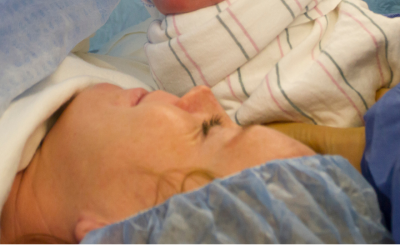
One-in-a-trillion – understanding single-cell sequencing to understand preeclampsia
Current Status and Prospects of the Single-Cell Sequencing Technologies for Revealing the Pathogenesis of Pregnancy-Associated Disorders
The adult human body is made up of about 100 trillion cells. In this article, researchers review the current published literature for single-cell sequencing and pregnancy-associated disorders. Single-cell sequencing is the technique of measuring gene expression within an individual cell. Single-cell sequencing can lead to new discoveries by 1) showing how gene expression profiles look in healthy cells, 2) helping us understand how the biology inside different cell types compares, and 3) also, by identifying cells that don’t have expected gene expression profiles, giving clues to how diseases develop. Single-cell sequencing technologies were only developed 14 years ago but have already allowed for many discoveries in pregnancy-associated disorders like diabetes and preeclampsia. Single-cell sequencing in preeclampsia research has focused largely on studying the gene expression of trophoblasts (the cell type that makes up the placenta). Work over the past 10 years has shown a difference in gene expression in single-cells from placentas of pregnancies with preeclampsia compared to normotensive placentas. The next step in this field will be look at the specific genes that are different in the placenta cells and using that data to better understand how preeclampsia develops and also how it can be prevented and treated.
Link: https://www.ncbi.nlm.nih.gov/pmc/articles/PMC10048492/
Citation: Naydenov DD, Vashukova ES, Barbitoff YA, Nasykhova YA, Glotov AS. Current Status and Prospects of the Single-Cell Sequencing Technologies for Revealing the Pathogenesis of Pregnancy-Associated Disorders. Genes (Basel). 2023 Mar 20;14(3):756. doi: 10.3390/genes14030756. PMID: 36981026; PMCID: PMC10048492.
About Research Roundup
Each quarter, our team of science writers reviews the most current research studies related to hypertensive disorders of pregnancy and summarizes those studies of greatest interest and potential impact to our community, including research studies related to risk assessment, diagnosis, prevention, and treatment. Special thanks to our volunteer research team, who under the leadership of Dr. Elizabeth Sutton, make Research Roundup possible, and to our Patient Advisory Council, who reviews these materials from the patient perspective.
Related Articles

Your story is needed to improve outcomes for moms like you. Add your voice to critical preeclampsia research to ensure that every story is heard.

Frequently asked questions about the Preeclampsia Registry, a patient-driven registry and biobank.

The Preeclampsia Foundation offers research funding, study recruitment, and other patient engagement services to researchers.

We provide research grant funding to advance progress towards detection, prevention, or treatment of preeclampsia, HELLP syndrome, and other hypertensive disorders of pregnancy.

Recent findings in preeclampsia research have shown that preeclampsia likely has at least two variants – an early onset and a late onset variant. Early onset is typically defined as before 34 we...

Preeclampsia is a pregnancy complication marked by new-onset high blood pressure and signs of stress on organs such as the kidneys, liver, and brain. While much attention is often given to preterm dis...

Preeclampsia is a serious problem that can happen during pregnancy. It often affects the brain and can cause headaches, vision problems, strong reflexes, and seizures (called eclampsia). In this study...

Pregnancy offers a unique window into a woman’s future heart and cardiovascular health. Conditions such as hypertensive disorders of pregnancy (HDP) which include gestational hypertension, preec...

Heart disease, also called cardiovascular disease (CVD), is becoming more common in young women across the United States. Hypertensive disorders of pregnancy (HDP) is a group of conditions that includ...



